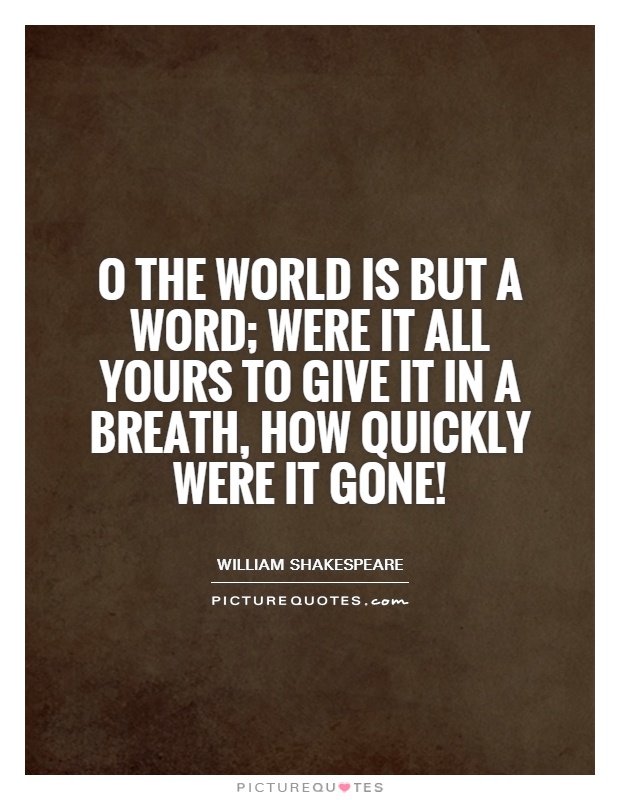O the world is but a word; were it all yours to give it in a breath, how quickly were it gone!

O the world is but a word; were it all yours to give it in a breath, how quickly were it gone!
In the famous play "King Lear" by William Shakespeare, the character of King Lear utters the profound line, "O the world is but a word; were it all yours to give it in a breath, how quickly were it gone!" This line encapsulates the fleeting nature of power, wealth, and worldly possessions, themes that are central to many of Shakespeare's works.Throughout his plays, Shakespeare often explores the transient nature of human existence and the impermanence of material wealth. In "King Lear," King Lear's realization that all his power and possessions could be taken away in an instant serves as a powerful reminder of the fragility of human life and the futility of placing too much importance on worldly goods.
Shakespeare's works are filled with characters who experience sudden reversals of fortune, demonstrating the unpredictability of life and the inevitability of change. From the tragic downfall of Macbeth to the unexpected rise of Henry V, Shakespeare's plays are replete with examples of characters who learn the hard way that worldly success is fleeting and ultimately meaningless.












 Friendship Quotes
Friendship Quotes Love Quotes
Love Quotes Life Quotes
Life Quotes Funny Quotes
Funny Quotes Motivational Quotes
Motivational Quotes Inspirational Quotes
Inspirational Quotes